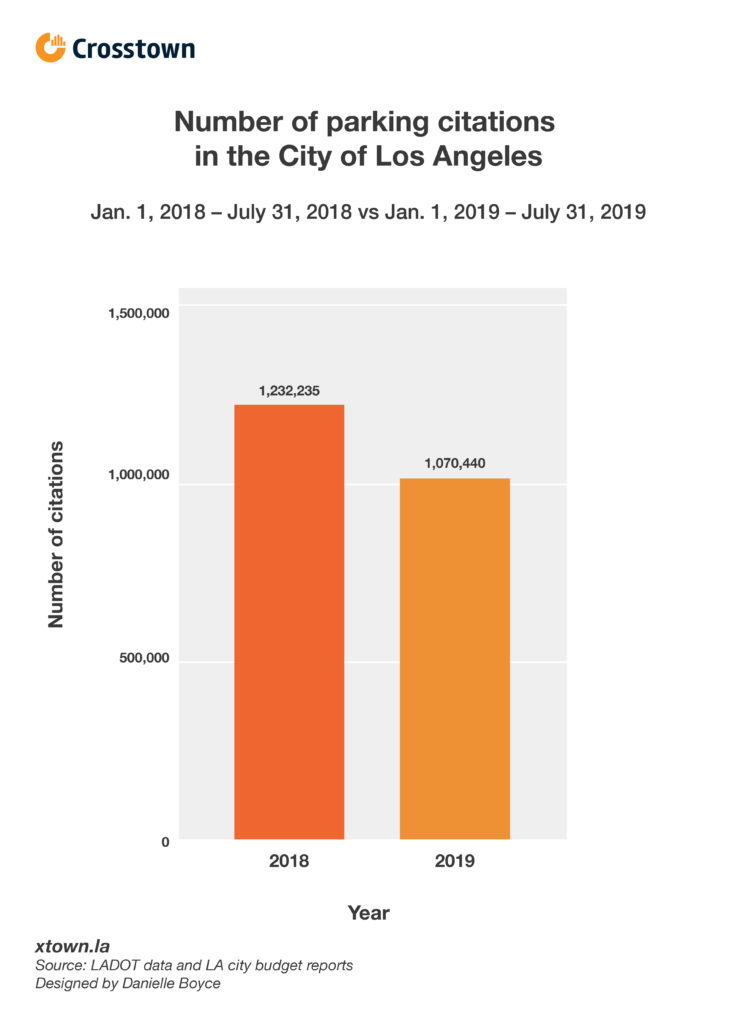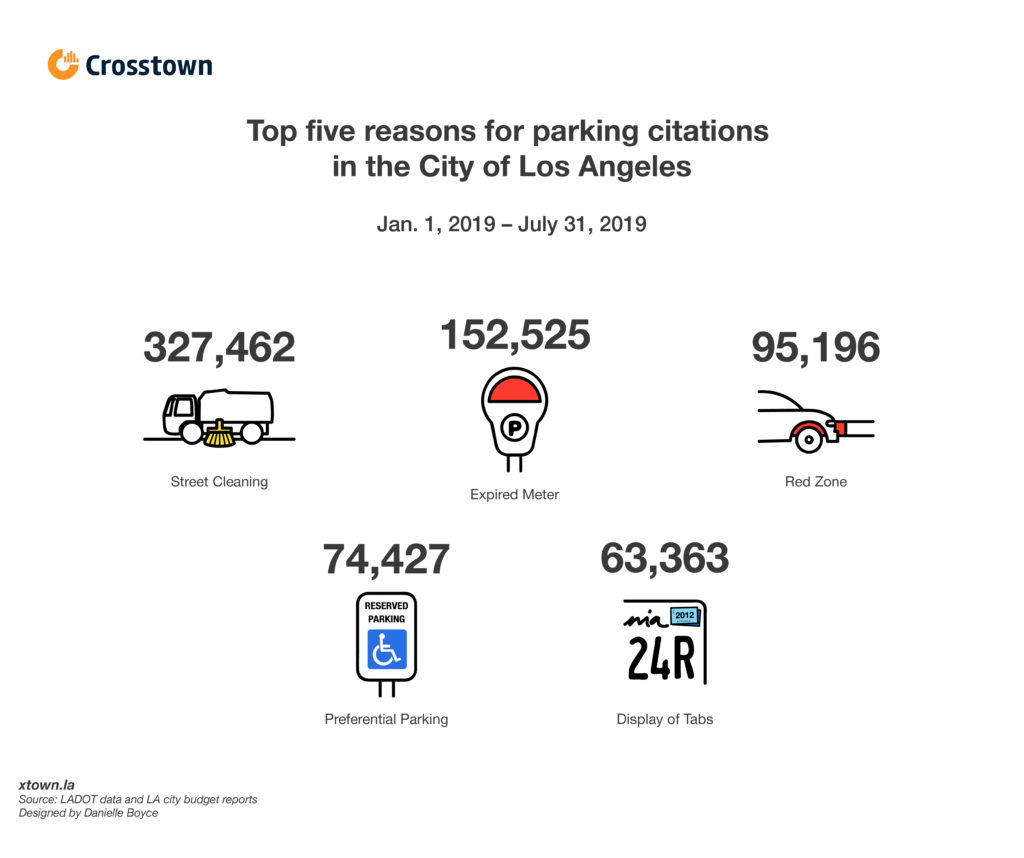Parking citations dipping, but tell that to folks who park Downtown
KPCC and LAist also produced a version of this story using our reporting.
The number of parking tickets issued by the City of Los Angeles dipped 13.1% during the first seven months of 2019 compared with the same time last year, according to Los Angeles Department of Transportation (LADOT) data and the LA city controller’s office.

But Silver Lake resident Karly Perez-Arevalo did not notice.
“At least 20 or 30. It was so f@#$%^& bad.”
That’s what Perez-Arevalo, an indie film producer, said when asked how many tickets she has accumulated on her white Jeep Patriot since moving to LA in 2015.
Perez-Arevalo received her latest ticket for $60 last month near 6th St. and Spring St. in Downtown LA for parking in a white zone. White zones are designated by the city as loading zones, specific to a certain time of day.
Over the last nine years, the top two reasons parking officers issued tickets in the City of Los Angeles were for cars parked during street-cleaning and expired parking meters.
Parking in handicapped spots without a handicap decal, parking in front of fire hydrants and improperly displayed registration stickers rounded out the top five.

Where are the most tickets issued? The neighborhoods of Downtown, Hollywood and Westlake made the top three for most citations. But the numbers were down 7%, 24% and 19%, respectively, compared with the same period last year.
See if your neighborhood made the top 10 below.

City Controller Ron Galperin said that parking tickets are controversial here in LA, especially when parking spots are hard to find. But, he added that parking tickets serve important public purposes, like keeping spots available in front of businesses and making sure first responders have clear access to fire lanes and hydrants for emergencies.
They also have another purpose: filling city coffers. Money from parking fines were expected to have brought in about $142 million of the city’s $9.89 billion budget during the most recent fiscal year.
But about three quarters of that revenue goes to covering the cost of paying for the parking enforcement officers, their cars, and so forth, according to Galperin.
Decreased revenue from citations also means less money in the city budget for services like street improvements and public safety, he said.
“If the city is collecting less revenue in this area, it will have to use money from other sources to fund the services that were previously paid for by issuing tickets,” Galperin said. “While this isn’t a major concern right now, because LA’s finances are relatively solid, things could get more challenging if this downward trend continues.”
Back in 2015, the city projected $165 million in parking fines. The controller’s office subsequently lowered its expectations over the next two years as actual revenues kept missing the estimates. In the beginning of 2018, the city’s estimated revenue from parking citations dropped to $140 million, according to budget reports.
“Parking ticket revenue isn’t a huge portion of the budget, but it’s not insignificant,” said Ian Thompson, communications director for the City Controller.

The decrease in parking citations so far this year can be partially explained by the Los Angeles Department of Transportation being stretched thin. Spokesperson Connie Llanos said the department faces a 20% vacancy rate driven largely by an aging workforce and employees are pulled in multiple directions, such as responding to more than 100,000 requests to remove abandoned vehicles and providing traffic management hours to an increasing number of special events throughout the city.
How we did it: We examined data from the Department of Transportation and City Controller’s office on traffic citations issued during the first seven months of 2019 compared to the same time period last year. For neighborhood boundaries, we rely on the borders defined by the Los Angeles Times. Learn more about our data here. LAPD data only reflect crimes that are reported to the department, not how many crimes actually occurred. In making our calculations, we rely on the data the LAPD makes publicly available. On occasion, LAPD may update past crime reports with new information, or recategorize past reports. Those revised reports do not always automatically become part of the public database.
Want to know how your neighborhood fares? Or simply just interested in our data? Email us at askus@xtown.la.






